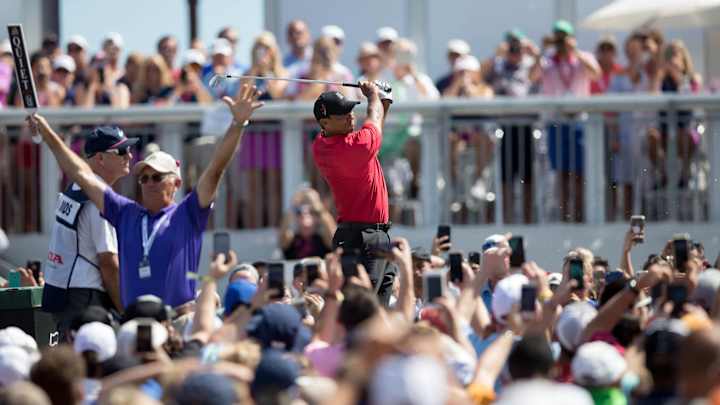Winning a Major Is Nice, but Golf's Finest Appear Content With Top-10 Finishes

As the British Open commences at Royal St. George’s—the final major championship of the year—the top of the Official World Golf Ranking is a study in mediocrity. And that might be too kind. Most of the top players aren’t showing the kind of form that is in any way commensurate with their place on the list.
Since the start of the Players Championship in March, only three top-10 players in the OWGR have a victory in any tournament and just one (Jon Rahm) has won a major championship, a victory in the U.S. Open a month ago. There are only four wins among players ranked 11-20 in that same span and one major—Hideki Matsuyama at the Masters.
Whether it’s a flaw or flaws in the system, which a number of observers firmly believe, or that championship golf simply isn’t very good at the minute, the fact remains that the number of players to get excited about this week can be counted on one hand with fingers left over.
The performances that prop up the rankings of top players can just as easily be viewed as falling short at inopportune times.
Take Brooks Koepka, for instance. He tied for second behind Phil Mickelson at the PGA Championship at Kiawah Island, tied for fourth at the U.S. Open and was T5 at the Travelers Championship. Those were good enough to lift him from 10th to 8th in the OWGR. The late Dan Jenkins said that a top-10 meant you had a chance to win—and didn’t.
The modern player, it seems, doesn’t hate to lose more than he wants to win. “I don't even care,” said Bryson DeChambeau after a final-nine unraveling on Sunday at the U.S. Open. “People think that ... I've changed a lot, attitude-wise and everything. It's frustrating in the moment when it's happening, but afterwards for me now, I don't really care as much. I've already won (the Open).”
Koepka said Tuesday about the end of the PGA Championship, “At the end of the day, I just didn't play [well] enough. I didn't putt anywhere remotely good enough to win. I didn't deserve it, but still lost, so doesn't matter.”
Tiger Woods despised losing, loathed it. A loss was a loss whether it was a runner-up by one shot or a T38. He didn’t count top-10s as feel-good medicine. Woods never had a moral victory ever. Losing was simply unacceptable. No excuses. Woods learned nothing from losing except he would do everything in his power, bend heaven and earth, not to repeat it.
And here we are, talking about Woods like he is ancient history. Except, like it or not, he’s the standard, admittedly an unachievable one. But it doesn’t sound like any of the top-ranked players in present time has any desire to even aspire to reach that high.
Koepka said that Sunday was the first time he had touched a club in the two weeks leading up to the Open, which sounds preposterous.
“Maybe I always don't have the best of prep coming into this,” he said Tuesday. “But I feel good. I feel my game feels solid. I like the way I'm hitting it right now, and definitely more comfortable than I've been in years past coming over [to the British Open].”
The two best friends of chronic underachievers are rationalization and justification. The notion for the modern player seems to be: “I’ve got my major(s); I don’t need any more. If I don’t win another one, I’ve had a good career.” For those who haven’t won a major, it’s: “If I don’t win one, it doesn’t define who I am.”
It’s just another form of defeatism. Even the tried and true “learning from your mistakes” doesn’t have the right sense of urgency it takes to be the best player in the world, which should be the singular ambition of every player in the top 20 or 30 or even 50.
“I've always learnt more from disappointments and from not doing as well,” said Rory McIlroy, who has four major titles, although the last one was in 2014. “But I've always tried to learn. I've always tried to figure out, okay, why did this week not go so well, and then you give yourself a couple of thoughts and they're fresh in your mind going into the next week.
“That's why I say in golf there's always next week, and that's a great thing, because you can right some wrongs pretty quickly. I've been able to do that in the past.”
That’s fine, even admirable to a degree. But perhaps McIlroy—and a number of others—should step to the first tee Thursday at Royal St. George’s with a novel idea: Play as if there was no next week.
